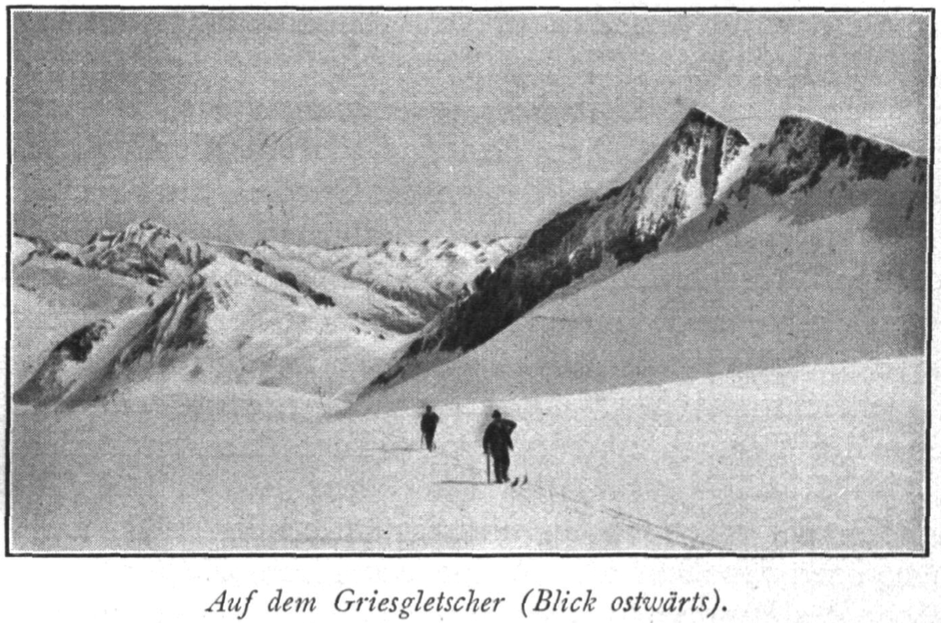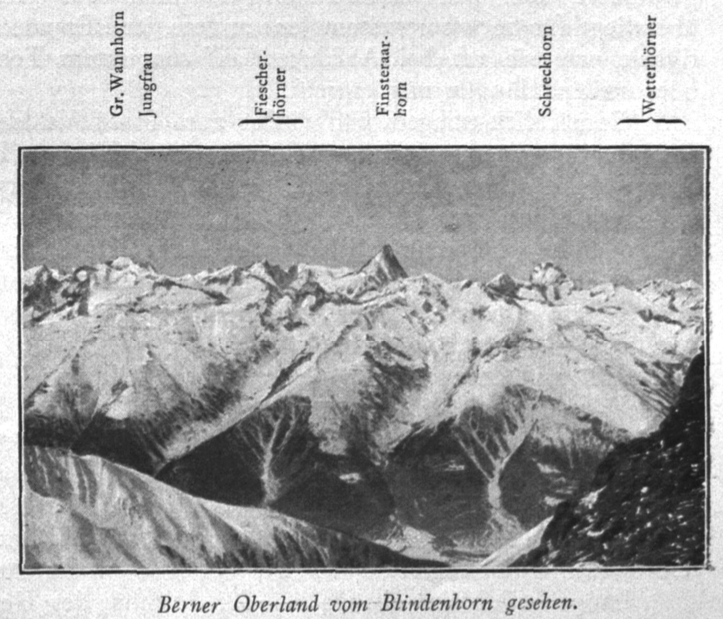Skiing on the Blindenhorn.
by Henry Hoek
"Life is fullness, not time." Schnitzler.
In cozy hours of soft evening twilight, memory likes to creep into the room on collected soles. It whispers of many a beautiful winter trip, of many a happy ski tour in high mountain splendor. Only then do some observations and experiences really come into their own; the excitement of the moment fades and reason can criticize more coolly.
I can look back on a whole series of alpine ski tours. They were certainly the tours that I count among my most impressive and enjoyable. But if I look at them from a sporting point of view - I have to admit that those who seek the sport of skiing will find more enjoyment in the low mountain ranges and in the foothills of the Alps. In the high mountains, skiing was almost always just a means to an end for me. And, almost without exception, it will probably only remain a means for the high mountain tourist to discover the winter beauty of the mountains - as a piece of sports equipment, it can hardly ever be the focus of interest.
That was the case on all alpine ski trips, however many I can remember. It was the same on the tour to the ice-covered cliffs of the Grands Mulets, a terrain that could hardly be more unsuitable for snowshoes, and it was the same on the crossing of the Bernese Oberland, the vaunted and praised "High Road.
Only one exception remains in my pleasant memory as the most ideal combination of a magnificent high mountain hike, combined with the unadulterated pleasure of sporty, beautiful skiing in an area specially created for snowshoes. That was our trip from Airolo to the Blindenhorn in the first few days of April 1903, about which I would like to tell you what I can remember of my experiences and feelings. "Experiences and feelings? Resentments? Thank you." Oh yes, I know! There has been a lot of mockery, a lot of derision about the feelings and emotions that are "constructed" at the desk. Partly rightly, partly wrongly, methinks. You can't lump everything together. Unfortunately, I too know enough tour reports full of impossible, because untrue, emotional outpourings. But does that mean that everything that touches on the realm of the later - of the imitated - is reprehensible? Certainly - that which, clothed in beautiful words, sets out into the world, did not come to consciousness at the moment, could not become conscious in the midst of physical exertion, in the midst of pressing impressions, assaulting images, will never be able to become conscious.
But if it is really so inadmissible to conjure up the image of one's comrade later in the quiet of the night at one's desk, to contemplate it, to revive one's feelings about it and then to analyze it - if this is really an aesthetic crime, then everything that goes beyond Xenophonti's dry chronicler's style is illicit and reprehensible; but then your wandering, your writing is in vain, is a dead letter, at best a jumble for reference.




